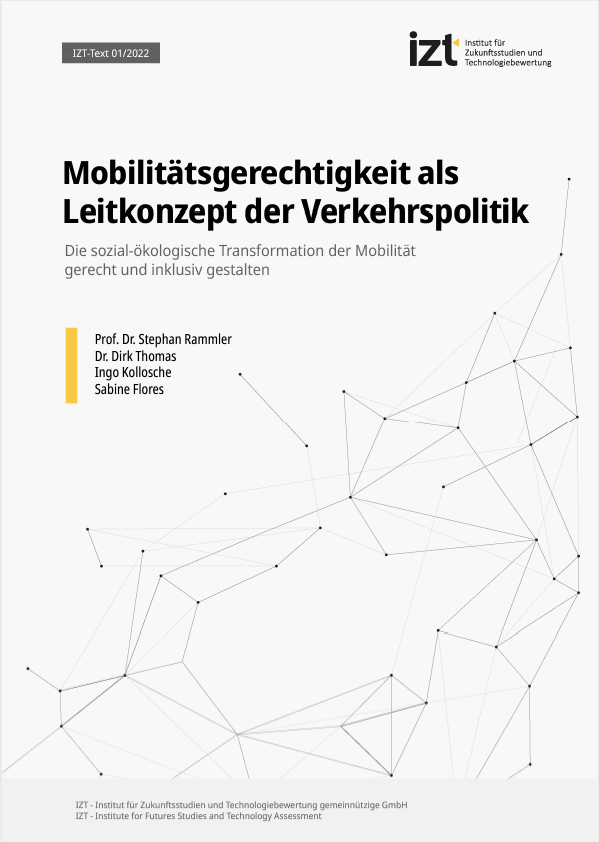Mobility justice as a guiding concept of transport policy
Abstract
This policy paper focuses on the "blind spots of mobility justice". It can be assumed that the creation of a high degree of social justice and inclusion in the environmental, access and distribution effects of modern transport systems will be a central source of political legitimacy for the forced socio-ecological transformation of mobility in the coming years. This will not succeed politically where ecologically well-intentioned regulation motivated by environmental and climate policy places a greater financial burden on socially weaker groups or excludes them. In the future, however, it will be a matter of communicating in a more politically credible way. Social justice is one of the most important vehicles of effective ecological transformation policy.
